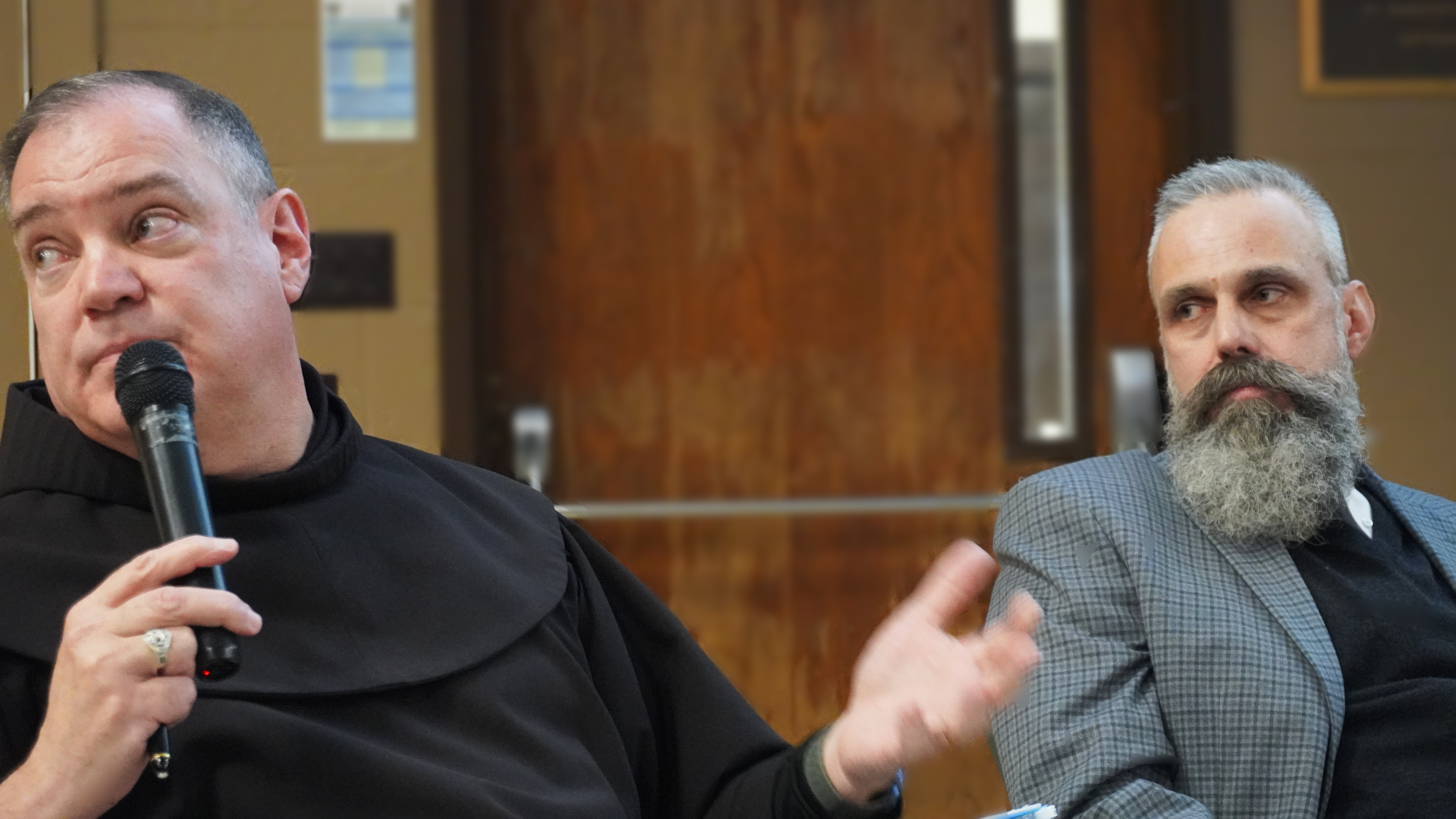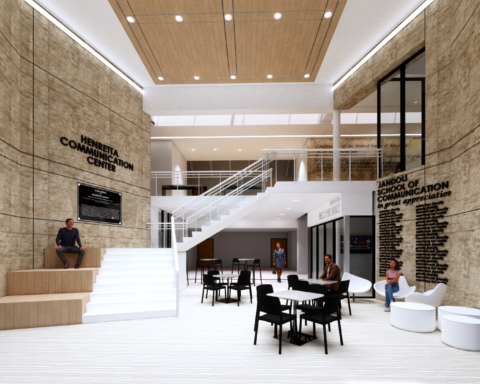By Diana McElfresh
Editor-In-Chief
The St. Bonaventure University faculty senators established the School of Allied Health at their meeting last Friday, Sept. 30.
With an agenda that had 10 pages worth of material to cover in a two-hour time frame, the faculty senate covered three, maybe four topics during the entire meeting. At least one hour was spent debating on the new school of allied health.
In a vote involving the 18 senators present, the motion to establish the school passed with a vote of 14 in-favor, three opposed and one abstained. The motion only needed 11 votes in favor to pass.
Joseph Zimmer Ph.D., provost and vice president for academic affairs, said it’s time to buy a flag, after the vote passed.
“I’m excited that SBU is creating the new school because it is a major initiative of our strategic plan and this will provide new opportunities for our students,” said Zimmer.
Anne Foerst, Ph.D., represented the sciences as a senator during the meeting. She was one of the three senators who opposed the vote to establish the school at the time even though she is a fan of the idea.
“I basically think it is a very good idea,” said Foerst. “[…] it fits our mission because we are all about addressing the whole human being and I see health as something that has a strong social component, so it fits our mission and there for, it is a good idea.”
Foerst, even though she is not personally affected by Allied Health because she is a part of the computer science department, is a senator for the sciences, and said it was her job to express her colleagues’ concerns and issues with establishing the school at the meeting.
The science department had concerns with limited lab space, limited lab instructors, lack of detail and the feeling that the sciences’ opinions on the issue was not taken into consideration at all, said Foerst.
“We have been told, finally, ‘Oh yes there will be more lab space.’ Where? ‘Well this will be put into classrooms.’ Where? And I think the underlying problem of that is, none of us was involved in the discussions that happened. The science faculty was not asked, the sciences was not consulted [….]”
There was a meeting prior to the senate meeting Friday between the sciences and Zimmer. It was then, said Zimmer, that questions were asked and answered. He also said that it didn’t have to be the last meeting.
“I conferred with the science faculty [members] about their concerns and addressed as many as I could in the 90 minute meeting,” said Zimmer. “I then offered to meet and address any ongoing issues as they come up. As for whether senators considered that in their votes, you’d have to ask them.”
Foerst was unable to attend the meeting, but from what she has been told by colleagues, the meeting did not answer the questions asked.
“Basically every single [colleague] said, ‘it was awful. It was awful.’ And when I asked why, and then basically we didn’t get the answers we needed and we weren’t heard and a lot of the information given didn’t make any sense,” said Foerst. “So there were a lot of complaints like that.”
After hearing Zimmer’s opposing perception of the meeting, Foerst checked with “several” colleagues and none of them changed their minds, but now they were even bitterer.
“One of the things that now makes us annoyed is that all our input they said would take into account, and yet none of any of the suggestions and questions and comments that we made in that meeting, were taken into account for the new proposal,” said Foerst. “So not only did they feel the meeting did not convey a lot of information and wasn’t productive, but in addition they felt they weren’t heard.”
During the faculty senate meeting, Zimmer promised transparency and, while knowing it is difficult to ask for, asked to be trusted. He laid out what kind of transparency could be expected.
“The initiative will be monitored and assessed regularly and the Senate is setting up an adisory committee to communicate with the community about the project,” said Zimmer.
The science department is not ready to trust the proposal yet. Foerst said there is bitterness and disappointment.
“He hasn’t given us anything to base our trust on,” said Foerst. “If you have communications early on, I mean we all knew it was in the works, but none of us were exposed to any detail. If there would have been transparency, why not give us the discussion for it? Why not ask us, at any given point, what is going on?”
Foerst did say there is no bad blood and a lot of the faculty is friends with Zimmer, but future transparency and having opinions taken into consideration is the first step in gaining the science department’s trust.
mcelfrdh14@bonaventure.edu





